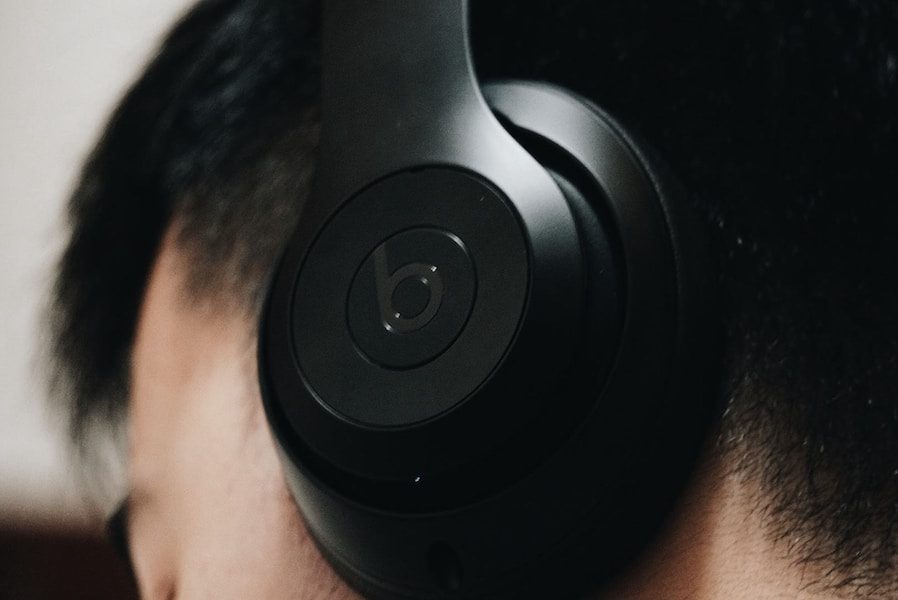Regarding studio headphones, professionals and audiophiles often seek a pair that delivers accurate sound reproduction, comfort, and durability. One brand that has garnered attention in the audio industry is Beats by Dr. Dre, known for its stylish designs and bass-heavy sound signatures. The question remains: Are Beats headphones good for studio use?
Beats’ reputation for enhanced bass may create some hesitation among those looking for a more neutral sound. However, it’s important to note that not all Beats models are the same, and some may be more suitable for studio work than others. For instance, the Beats Studio3 Wireless provides a balanced audio experience with active noise cancellation, making them an option for studio use.
Ultimately, whether or not Beats headphones are suitable for studio environments will depend on the specific model and the individual’s preferences. But the short answer is yes, Beats Headphones are adequate for studio use.
While they may not be the first choice for some audio professionals, it’s worth examining the features and performance of each Beats model to determine if they could indeed be a good match for studio work.
Table of Contents
- Beats Headphones Overview
- Studio Needs and Preferences
- Sound Quality and Frequency Response
- Comfort and Durability
- Comparing to Other Studio Headphones
- Conclusion

Beats Headphones Overview
Beats headphones are a popular choice for many music enthusiasts, with a reputation for their stylish designs, powerful bass, and seamless integration with Apple devices. The brand offers a range of products, including wired, wireless, over-ear, and in-ear headphones, attracting a diverse user base.
Though known for their consumer-grade headphones, some Beats models have features catering to studio environments’ needs. For example, Beats Studio Buds support Apple’s Spatial Audio with Dolby Atmos format and are equipped with active noise cancellation (ANC) technology to provide an immersive listening experience.
Another notable model, the Beats Studio3 Wireless, boasts improved ANC and a better control scheme than its predecessor. While the sound quality is similar, the Studio3 line performs slightly better.
However, it is important to acknowledge that studio headphones are designed to deliver accurate audio reproduction. This allows for precise sound editing and mixing during production. Therefore, Beats headphones may not be among the top choices for professional studio use, as their sound signature tends to focus more on bass-heavy listening experiences rather than neutral and accurate audio.
For studio environments, exploring other specialized studio headphones that offer a flatter frequency response and minimal coloration of sound may be beneficial, which helps attain a more accurate representation of audio during recording and mixing sessions.
Studio Needs and Preferences
When considering the suitability of any headphones for studio use, evaluating specific needs and preferences that align with professional audio production requirements is crucial. Studio headphones must provide accurate and neutral sound reproduction, allowing the user to identify and correct any flaws in the audio throughout the recording and mixing process.
A key aspect to look for is a flat frequency response, as it ensures an unbiased representation of sound. However, Beats headphones are known for having more bass, which might not be optimal for professional studio work. They can skew the perception of other audio elements during the recording and mixing process.
Another essential factor for studio headphones is proper isolation and comfort. The pads or cups should be well-sealed to prevent audio from leaking and causing disturbance or inaccuracies during recording sessions. Unfortunately, Beats headphones reportedly do not have the best seal, which may lead to audio bleed and affect the overall fidelity of the recordings.
Closed-back headphones are generally favored for live studio recording, as they isolate audio to prevent sound from leaking into microphones.
Juan Louder
Lastly, weighing the importance of open-back or closed-back headphones for different studio tasks is vital. Closed-back headphones are generally favored for live studio recording, as they isolate audio to prevent sound from leaking into microphones.
In contrast, open-back headphones can be more comfortable and immersive for mixing tasks. Carefully selecting the appropriate type of headphones will contribute to an efficient and high-quality studio experience.
Sound Quality and Frequency Response
The sound quality of headphones is crucial for studio work, including recording, mixing, and mastering. Due to the reputation of Beats headphones as consumer-oriented products, you might wonder how well they perform in a studio environment. For instance, regarding frequency response, the range of frequencies a headphone can reproduce faithfully, studio headphones are typically expected to have a flat and accurate curve.
Beats Studio3 Wireless, one of the brand’s over-ear headphones, has an active noise canceling (ANC) feature that automatically adapts to the user and their environment.
However, when considering their sound signature, Beats headphones are generally known for their bass-heavy profile, which might not be ideal for studio work that requires accurate and neutral sound reproduction.
Compared to the AKG K712 PRO – an open-back studio headphone known for its exceptional sound quality and wide frequency response of 10Hz to 39.8KHz – the Beats Studio3 Wireless might not deliver the same level of accuracy in reproducing different frequencies. Nevertheless, it is worth noting that sound preferences can be subjective, and some users might still find the Beats Studio3 Wireless suitable for certain tasks in a studio environment.
Comfort and Durability
Beats headphones, specifically the Beats Studio Buds, are known for their comfort. These earbuds are designed to fit snugly in the ear without causing discomfort during long listening sessions. Their ergonomic design ensures they remain securely in place, even during intense activities or movement.
Regarding over-ear models, the Beats Studio 3 Wireless headphones feature plush ear cups and an adjustable headband that provide a comfortable fit. The soft padding on the ear cups and headband helps distribute the weight evenly, reducing pressure on the head and ears.
As for durability, Beats headphones are built with high-quality materials to ensure they can withstand the demands of studio usage. The Beats Studio Buds, for instance, have a sweat and water-resistant design, making them suitable for various environments and activities. Similarly, the Beats Studio 3 Wireless headphones have robust hinges, allowing them to fold up easily for storage and transport without compromising their structure.
In summary, Beats headphones prioritize comfort and durability, making them a viable option for individuals who require headphones for extended periods in a studio setting. However, it is essential to note that these headphones are not specifically designed for studio use and, thus, might not offer the same level of accuracy and detail as dedicated studio headphones.
Comparing to Other Studio Headphones
Beats headphones are known for their stylish design and rich bass, but compared to well-regarded studio headphones, they might not always be the top choice for professional use. Some popular studio headphones widely considered suitable for professional settings include the AKG K712 PRO and the Sennheiser HD 800 S.
Key factors to consider when selecting studio headphones include comfort, durability, sound quality, and isolation. The AKG K712 PRO, for example, features an open-back design, 62-ohm impedance, and 40mm dynamic drivers, providing wide frequency response and well-balanced sound quality. In contrast, Beats headphones often have a closed-back design and prioritize bass-heavy sound signatures, which may not accurately represent audio details during mixing or recording.
Another point to consider when comparing studio headphones is the quality of the built-in microphone. While both Beats Studio3 Wireless and Bose QuietComfort 45 come with built-in microphones, the Bose QuietComfort 45 has been noted to have better microphone quality in both ideal and windy conditions. This aspect could make a difference in the overall effectiveness of Beats headphones for studio use.
When comparing battery life, Beats headphones usually perform well. For example, when connected wirelessly, the Beats Solo3 provides up to 45 hours of listening time. However, battery life is often not a significant concern in a studio setting, where wired, constant power sources are readily available.
In conclusion, Beats headphones may be suitable for some studio applications. Still, they might not be the best choice for professionals who require accurate audio reproduction and features specifically designed for mixing and recording. It is essential to compare them to highly regarded options in the market and consider each headphone’s features and specifications before deciding.
Conclusion
In evaluating the suitability of Beats headphones for studio use, it is essential to consider their sound quality and performance. For example, the Beats Studio3 Wireless headphones offer quality Bluetooth audio and above-average noise cancellation. However, some may argue that the emphasis on bass in these headphones can overshadow other audio elements, as noted in the Beats Studio Wireless review by Digital Trends.
Though the comfort and design of Beats headphones make them popular in casual settings, it is essential to determine if they can deliver the precision, clarity, and flat response required for professional studio monitoring. In this regard, Beats might not be the number one choice for serious audio professionals due to their more consumer-oriented, bass-heavy sound signature.
While Beats headphones might not be ideal for audiophiles or professionals seeking a perfectly balanced sound profile, they can still provide enjoyable listening experiences for those who prefer their music with an extra bass punch. Ultimately, whether to use Beats for studio purposes depends on the individual’s preferences and priorities in sound quality and performance.
- Review of the ALABS IRON MINI-WL: A Powerhouse Wireless Microphone - October 4, 2023
- What is a Saturator in Music Production: A Brief Explanation - May 11, 2023
- What Are Rotary DJ Mixers? An Overview - May 11, 2023
SoundStudiomagic.com is a participant in the Amazon Services LLC Associates Program, an affiliate advertising program designed to provide a means for sites to earn advertising fees by advertising and linking to Amazon.com. We also participate in other affiliate programs which compensate us for referring traffic.





